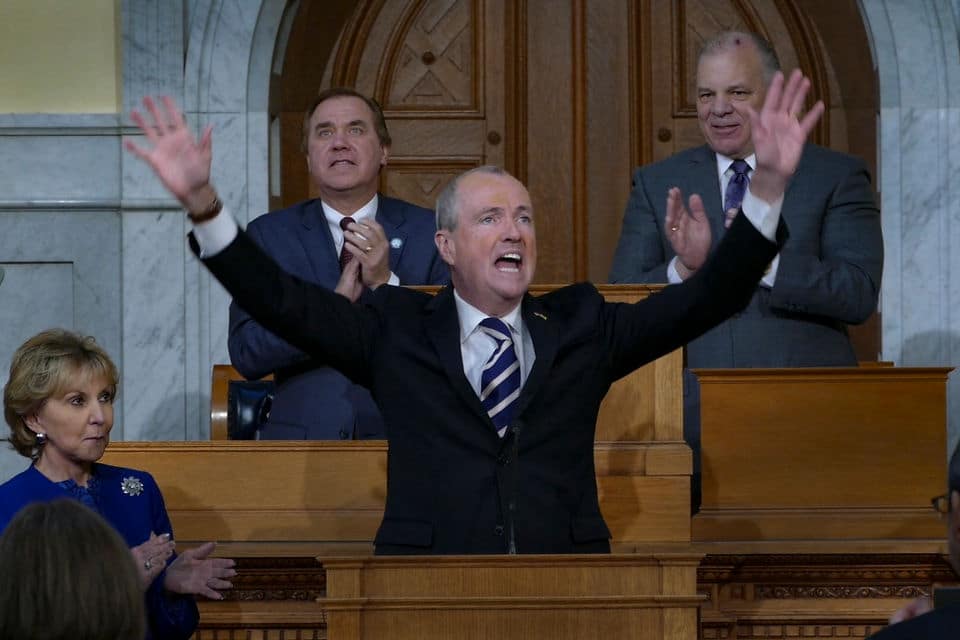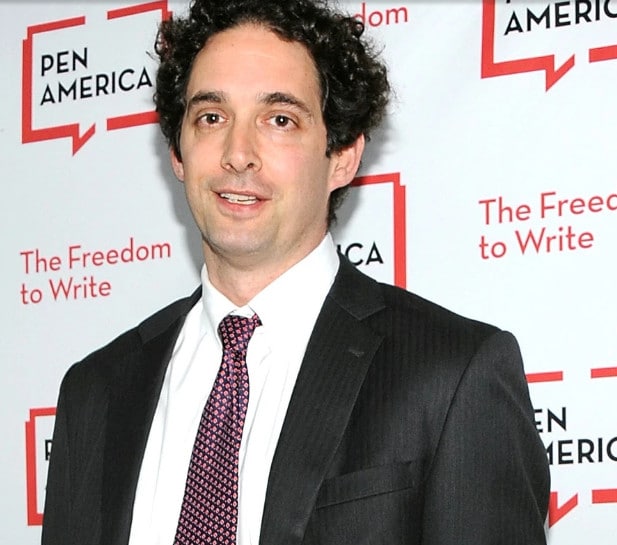For months now, Gov. Phil Murphy and Senate President Stephen Sweeney have glared at each other across fault lines in the New Jersey Democratic Party.
But last week, the two went nose to nose in the minefield of racial politics after Murphy went out of his way to stress that two of his Cabinet nominees that Sweeney is blocking happen to be African Americans.
Sweeney quickly took umbrage and suggested the governor was pressuring him to relent by playing the race card. Adding more fuel to the fire, Sweeney later likened Murphy to the mercurial President Trump, who lashes out “when he doesn’t get his way.”
“He’s better than that,” Sweeney said in an interview Friday with The Record and Northjersey.com. The Trump comparison is also an ironic jab at Murphy who has made defying Trump a defining feature his new administration. A Murphy spokesman declined to comment.
This is a political fight that poses real life consequences for New Jersey and for Murphy’s bold plans to give the state a progressive makeover.
The two men rarely talk to each other, a sharp contrast to Sweeney’s speed-dial relationship with former Republican Gov. Chris Christie, and their increasingly sour standoff could undermine Murphy’s push to legalize marijuana for recreational use, his pledge to offer free tuition at community colleges and his call to create a new state bank.
Sweeney is cool to the tax hikes Murphy has proposed to finance his first $34.7 billion budget and the first phase of his ambitious overhaul. Sweeney calls the tax hikes a measure of “last resort” and wants to chart a more moderate course that includes cuts and consolidation to government services.
For many Democrats, Murphy’s election was supposed to usher in a long-awaited promised land of one-party rule in Trenton. But for now, the Sweeney-Murphy feud portends a long period of paralysis. Democratic Party unity? How about gridlock?
This fight illustrates two Democrats with vastly different styles and experience. Murphy is a political neophyte trying to find his sea legs in the Trenton shark tank. Sweeney is a battle-tested veteran of the bruising inside game with a long memory of past slights and a willingness to settle scores when it suits his strategic purposes.
Murphy, more a smiling salesman than backroom deal maker, is trying to figure out how to use his newfound power while Sweeney is eager to give him a lesson on how it’s done.
The fight escalated after Sweeney pulled the names of the two nominees — Lamont Repollet, for education commissioner, Zakiya Smith Ellis, as secretary of Higher Education — from a list of nominees scheduled for a final confirmation vote by the full Senate last Thursday.
Asked about the move later that day in Montclair, Murphy said there was “no reason not to confirm these folks,” and took care to note that both nominees are “African-American Ph.D.’s” and would soon join the “most diverse Cabinet” in state history, possibly in the country — an identity-politics talking point that the unabashedly liberal Murphy rarely misses a chance to mention.
And for those who might have missed the point, Murphy went further. He took note that the nation had just celebrated Black History Month.
“I’m incredibly proud of everybody, beginning with my partner to the left, and I’m certainly proud of the two of them,” Murphy said, with Lt. Gov. Sheila Oliver, who is also African-American, sitting at his side. “And I hope they get confirmed as soon as possible.”
NJ NEWS: Democrats want pay raises for judges, prosecutors, top state officials
CHARLIE STILE: Recording shows combative Trump previewing bare-knuckle style
To his defenders, Murphy was simply — and harmlessly — touting their credentials and the diversity of his Cabinet, a point of pride. In short, he was reading from a routine script. But Sweeney took the repeated references to the race of the nominees as a veiled-threat and possibly the start of a sustained campaign to imply that his opposition to the nominees was racially motivated.
“Every person that I spoke to…read it the same way,” Sweeney said.
School funding
Sweeney said the issue had “absolutely nothing to do” with race, and he predicted that both will eventually get confirmed. He noted that two other Murphy nominees, both African-Americans, have already confirmed by the Senate — Jamal Beale, adjutant general for the state’s Department of Military and Veterans Affairs and Tahesha Way, a former Passaic County freeholder, as secretary of state.
The Senate under Sweeney’s control also approved other Murphy Cabinet choices who are also minorities, including Attorney General Gurbir Grewal, a Sikh, and Shereef Elnahal, a Muslim-American as health commissioner.
It also should be noted that Sweeney protested Christie’s 2010 decision to dump associate Supreme Court Justice John Wallace, the second African American to serve on the high court, by blocking a slew of Christie’s judicial nominations for nearly two years.
And if Sweeney’s decision is seen through the prism of race, then, as some Democrats pointed out last week, so should Murphy’s decision to abruptly fire Paula White, an African-American woman, shortly after she was confirmed as an assistant education commissioner in February.
Critics said Murphy ditched White after the officials from the New Jersey Education Association objected over her past work with the charter school movement, but Murphy said the decision was solely his. He explained that White was dismissed because she is “not consistent with my views of where we want to take education in this state.”
Sweeney said he was upset with remarks Repollet made at his confirmation hearing, in which he suggested that it could take a year to negotiate changes in the state’s method of distributing aid to public schools. Sweeney, who has made education funding a top priority in budget negotiations over the past two years, believes the issue could be fixed immediately and saw Recollet’s remarks as a portent of delay.
“I’m going to fix it. I’m going to get this fixed this year,” Sweeney said in the interview. “I’m not backing away from this.”
Sweeney also said he was dissatisfied with some of Smith Ellis’ answers to a questionnaire. He declined to go into specifics.
Teacher’s union dispute
The deep freeze between Sweeney and Murphy began almost immediately after Murphy’s election in November. Sweeney was incensed that Murphy refused to intercede on his behalf with the NJEA, which targeted Sweeney for defeat in his reelection race. Sweeney was reelected by a 19-point margin but spent heavily to deflect the teacher’s union onslaught.
Murphy’s neutrality during the race only reinforced the suspicion that he had sided with the NJEA, the state’s most powerful union. That suspicion was further inflamed when Murphy selected NJEA President Marie Blistan for a top post in his transition. Blistan had also been a long-time Sweeney antagonist in Gloucester County, Sweeney’s base.
Despite the bad blood, Murphy has succeeded in getting some of his promised liberal agenda through the Senate and the Assembly, led by Democrat Craig J. Coughlin, the new speaker from Middlesex County.
Bills that would make voter registration automatic, require employers to offer paid sick leave and reinstate the Affordable Care Act’s health care mandate, are now headed to Murphy’s desk for his signature. The first bill Murphy signed into law restored $7.5 million that Christie cut for Planned Parenthood clinics. Sweeney sat behind him on the stage during the ceremony.
But larger, thornier issues — like a plan to boost the minimum wage to $15 an hour, the proposed tax hikes on millionaires, and disagreements over school funding and plans to stabilize pension funding — could also run into the buzz saw of bad relations.
Some Democrats are watching the feud unfold with concern but confidence that the pressure of a constitutional budget deadline will ultimately force two men to set aside differences and deal.
“We have a Democratic governor, a Democratic Assembly speaker, and a Democratic Senate president, and at the end of the day we should all play in the same sandbox,” said Bergen County Democratic Chairman Lou Stellato in a recent interview before last week’s flap.
He added: “Logic dictates that it is the Democrats who are going to screw up — or do the right thing.”
Credit: northjersey.com















